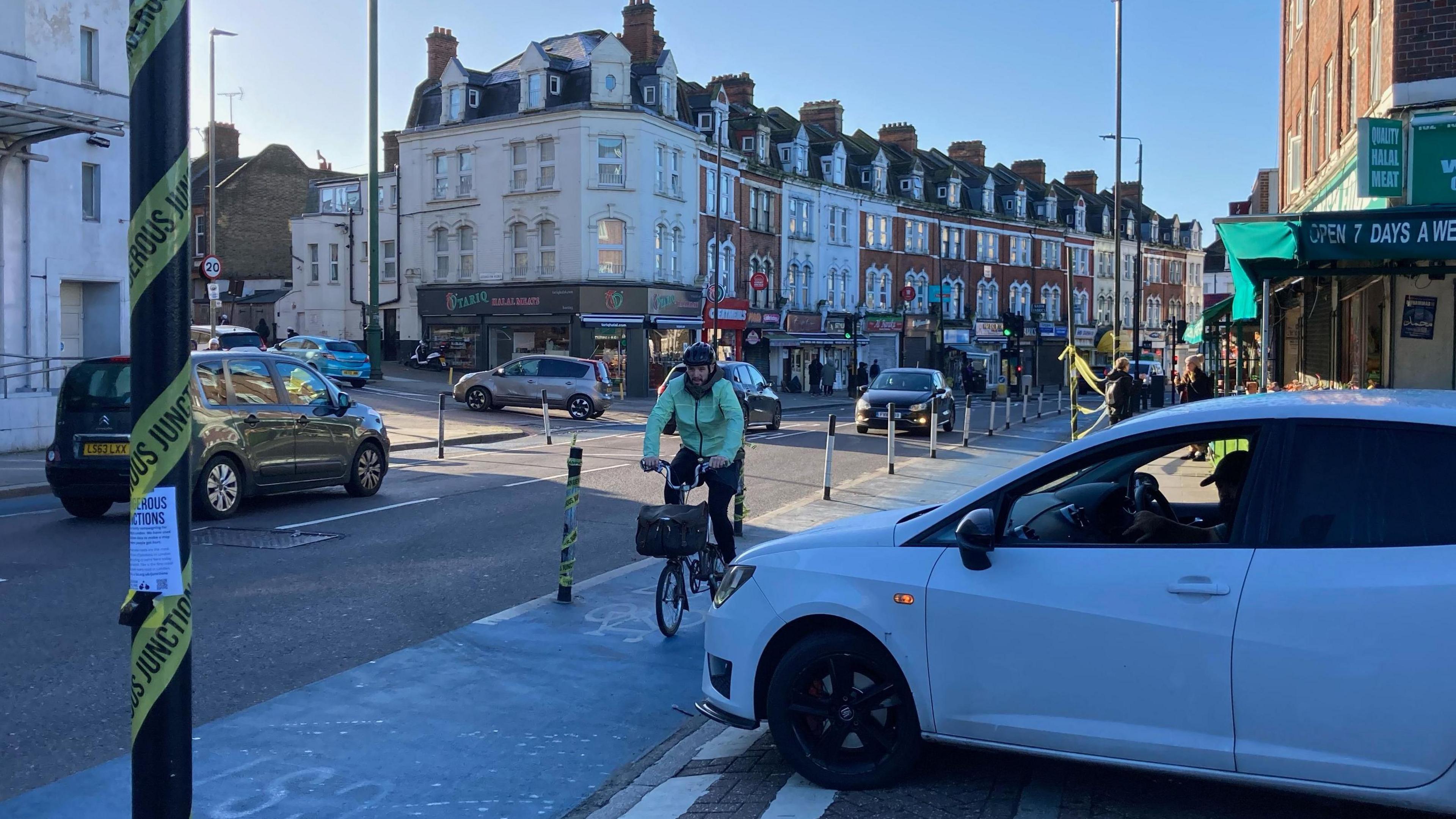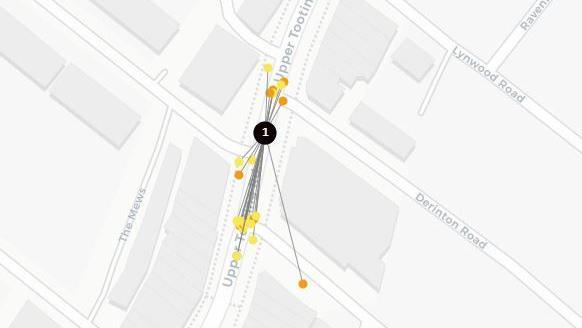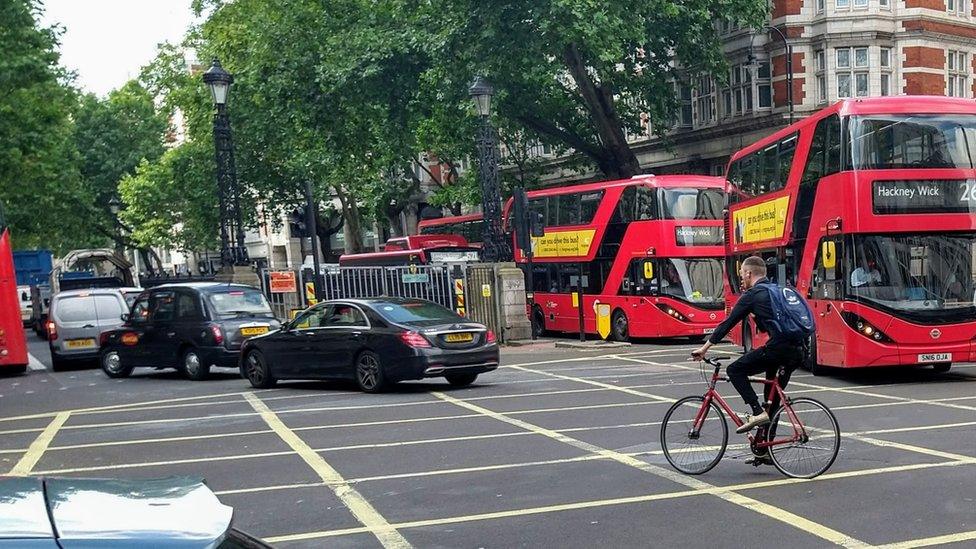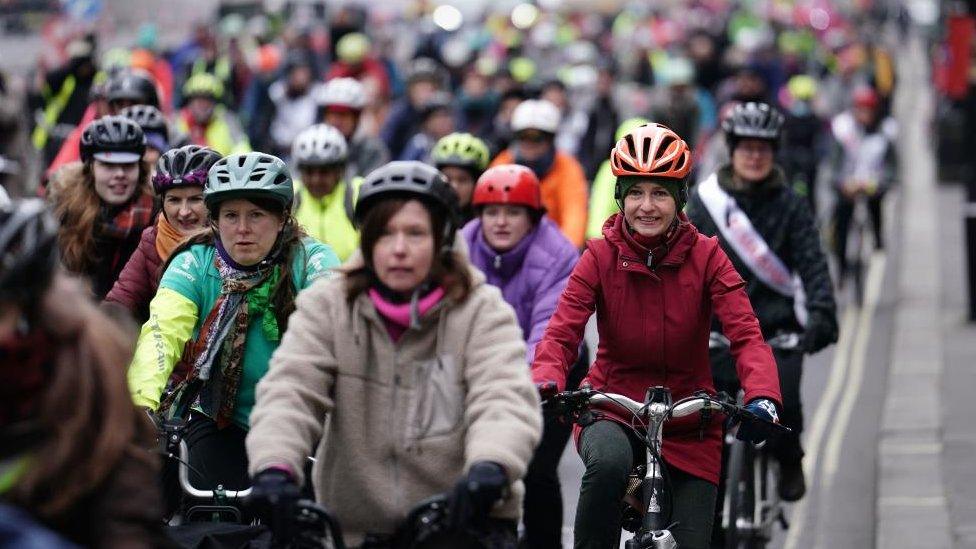Top 10 dangerous cycling junctions named in new map

London Cycling Campaign has wrapped "warning" tape around what it says is the most dangerous junction in London
At a glance
The London Cycling Campaign has analysed the number of cyclist deaths and injuries at junctions across London
The "horrific data" placed four of the worst junctions in south London
City Hall said it was working to make cycling safer in the city
- Published
The top 10 most dangerous junctions for cyclists in London have been named as part of an interactive map, external.
Data collated by the London Cycling Campaign (LCC) revealed that the four worst junctions were in south London.
It found there were seven deaths, 37 serious injuries and 71 slight injuries across the 10 junctions between 2018 and 2022.
The LCC called the data "horrific" while City Hall said it was working to make cycling safer.
'3,000 cycling journeys'
The most dangerous cluster of junctions were in Tooting, south London, where 11 serious and 18 slight injuries were recorded between 2018 and 2022, the charity said.
This was where Ansell Road, Derinton Road, Price Close and Lessingham Avenue meet the A24, Upper Tooting Road.
The route is part of the cycle SuperHighway CS7 and about 3,000 cycling journeys are made there daily, London Cycling Campaign said.

The location of collisions on Upper Tooting Road between 2018 and 2022
The worst junctions were named as:
Upper Tooting Road
Lambeth Road and Kennington Road
Wandsworth Road and North Street
Mitcham Road and Leighton Street
Finsbury Park and Blackstock Road
Holborn (Station)
Holborn (Theobalds Road)
Queen's Circus
Shoreditch Triangle (Great Eastern Street and Curtain Road)
Knightsbridge (including Albert Gate)
Junctions two to eight in the above ranking have all seen one cyclist killed in the last five years, the LCC said.
Jeremy Leach, chair of London Living Streets, said almost 4,000 people were killed or seriously injured on London’s roads last year.
"Well over half of those were either walking or cycling," he said. "This is simply an unacceptable level of loss and road danger."
Last year, LCC said the most dangerous junctions were in Holborn, King's Cross and Shoreditch.
This year, it changed its algorithm to include more of London's roads and their changing traffic patterns.
'Faster and bolder'
Tom Fyans, LCC chief executive, said the mayor's plan to eliminate all deaths on roads and transport networks in London by 2041, external needed to be "faster and bolder".
In response, London's walking and cycling commissioner, Will Norman, said: “The mayor and I are committed to eliminating deaths and serious injuries from London’s streets.
"We are delivering high-quality cycle routes and investing in work that makes dangerous junctions safer."
A spokesperson for Transport for London said it had reduced danger at 44 junctions as part of their Safer Junctions programme.
"We continue to work on designs for a significant number of further locations... including many of those highlighted by this data," they added.
Listen to the best of BBC Radio London on Sounds and follow BBC London on Facebook, external, X, external and Instagram, external. Send your story ideas to hello.bbclondon@bbc.co.uk, external
Related topics
- Published15 November 2022

- Published5 March 2023
